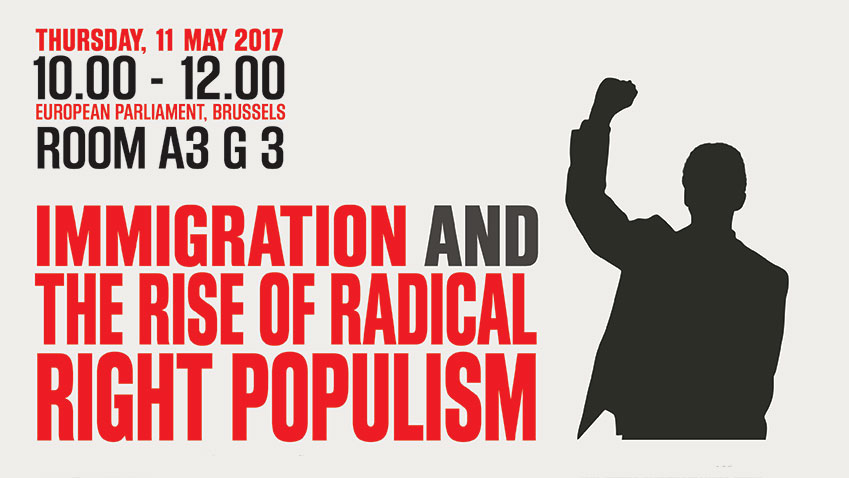The World Forum for Democracy coordinator travelled to Brussels to moderate an event on “Immigration and the rise of radical right populism” at the European Parliament on the 11th May.
Populist political discourse often exploits fears of immigration. Many European countries have experienced a sharp rise in the number of immigrants and this has been accompanied by outbreaks of hostility towards foreigners who are perceived as a threat to precarious jobs and livelihoods, but also as posing a challenge to national cultures and identities. The conference therefore dealt with specific situations in several EU Member States and possible counter-strategies to hate speech and politics of fear and hate.
The event was chaired by European members of Parliament Ana Gomes from Portugal and Peter Niederlechner from Hungary. It featured amongst others Gavan Titley, Senior Lecturer, of Media Studies from the National University of Ireland as well as Ricard Zapata Barrero, Professor at the Social and Political Science Department at Universitat Pompeu Fabra in Spain.
Mr. Titley spoke about the use of media and the rise of radical right populists. Mr. Zapata Barrero analysed the impact of the populist surge on mainstream political parties and suggested counter strategies and responses. In-depth case studies from Finland and the UK were also discussed. In addition, the documentary film "Boiling point" was screened. This documentary depicts the two sides of an angry and divided Finland: asylum seekers and an anti-immigrant street patrol group called soldiers of Odin.
The below recommendations will be taken into account in the preparation of the World Forum for Democracy 2017:
- The need for more spaces for political debate. There seems to be a link between populism and countries with a low degree of active civil society engagement and party-led debate in clubs, churches, universities, trade unions etc.
- Parties and candidates should spend more time exchanging with their voters
- Parties and candidates should promote diverse membership
- Invest in education as good level of education it is the best predictor of non-populist vote.
- Mainstream parties should engage convincingly in issues around LGBTQ rights, minorities, women's rights, which have been invested by populists.
- Mainstream parties try to be neutral - non-racist, non-xenophobic, but they should be actively anti-xenophobic, anti-racist.
- Need for instruments for measuring whether and to what extent political party narratives are xenophobic and discriminatory, with solid objective indicators, a monitoring system and sanctions. With parties increasingly being replaced by lose movements and lists, we cannot rely on self-regulation but need outside bodies to monitor and sanction.

